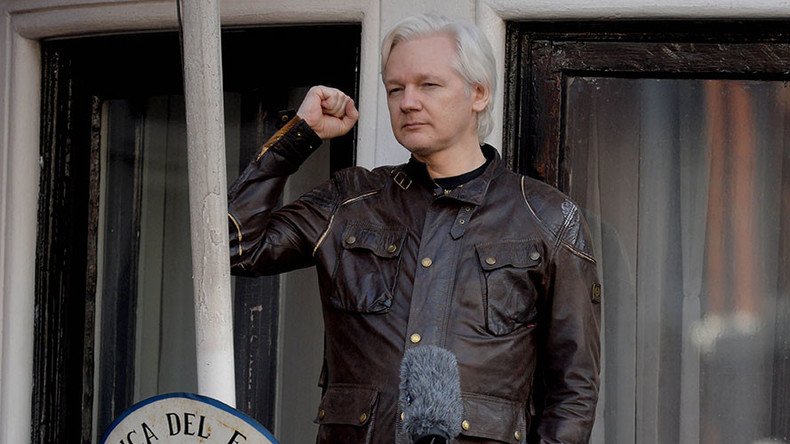Assange defends Clinton campaign leaks in foreword of new book

A book about Hillary Clinton’s presidential run is being promoted by WikiLeaks, thanks in no small part to a foreword by Julian Assange in which he defends publishing leaked Democratic Party campaign material.
The latest edition of ‘How I Lost by Hillary Clinton’ by former Wall Street Journal correspondent Joe Lauria is said to examine how the US was “delivered” to Donald Trump.
Our gloriously cheeky new book https://t.co/Z9FKWc4g55
— Julian Assange (@JulianAssange) May 23, 2017
Clinton, who believes the decision by then-FBI Director James Comey’s to reopen an investigation into her use of a private email server was fatal to her election chances, has long maintained that the leaks were a “Russian plot“.
However, Lauria’s 264-page book apparently builds a picture of what he says are the “real reasons” Clinton’s campaign fell flat.
READ MORE: Clinton blames FBI director & Russia for her defeat
In the book’s foreward, provided to RT.com by publisher OrBooks, Julian Assange begins by reiterating that WikiLeaks did not seek to support any US presidential candidate.
“If we have information on any significant power faction or candidate in a globally significant election campaign, we publish it,” he writes.
Acknowledging the “fierce” reaction to the leak of thousands of Democratic National Committee (DNC) and Clinton email documents, Assange describes the “truthful information” as “beneficial.”
NEW book: "How I Lost By Hillary Clinton" https://t.co/1Tt91GPR8Ppic.twitter.com/KmxoQORmJ8pic.twitter.com/W5zK17FvG8
— WikiLeaks (@wikileaks) May 23, 2017
“We can all profit from learning what one of the candidates for president said behind closed doors about Syria, fracking, court action, innovation, her relationship with the average American, healthcare, China, education, Russia, surveillance and even Edward Snowden and myself,” he adds.
Last summer, WikiLeaks released more than 60,000 leaked emails and attachments purportedly sent by members of the DNC. Leaked messages from the account of Clinton campaign chair John Podesta also provided an insight into the inner workings of her presidential run.
READ MORE: Best of the worst: Here are the most shocking WikiLeaks Podesta emails so far
Other revelations included ways Clinton’s team dealt with sexual assault allegations levelled at Bill Clinton, the campaign’s attitude towards rival Democratic primary candidate Bernie Sanders, and its close relationships with certain journalists.
“From the Podesta emails we have learned a lot about journalism and ‘journalisn’t’,” Assange writes.
“We now know the outlets and journalists that are willing to provide an advantage to their preferred candidate. We now better understand how to read the ‘news”’ that comes from certain outlets, and that journalists provide questions prior to them being asked and articles for vetting prior to their publication.”
Where can you turn when you're terrified of both candidates? #Clinton#Trump#Stein
— Joe Lauria (@unjoe) September 18, 2016












